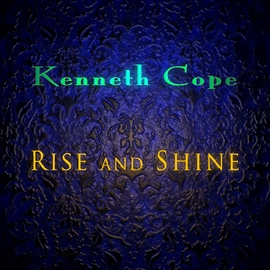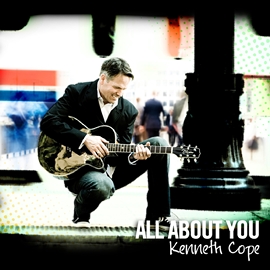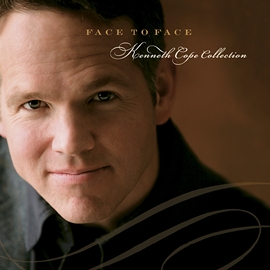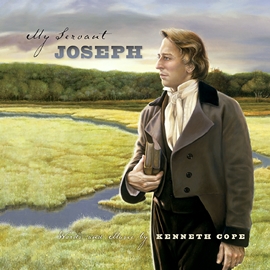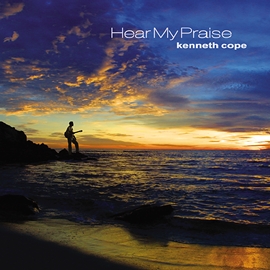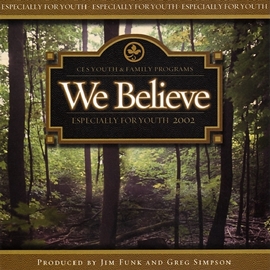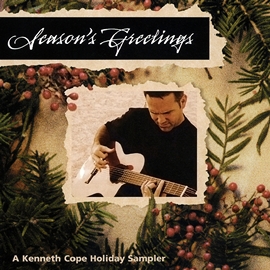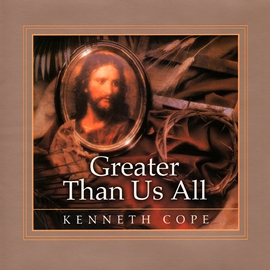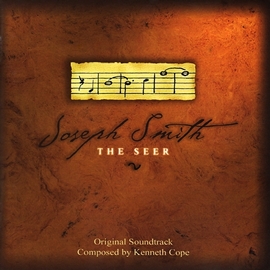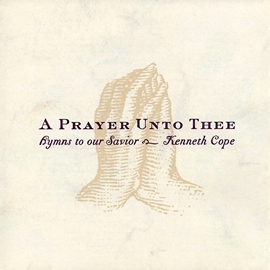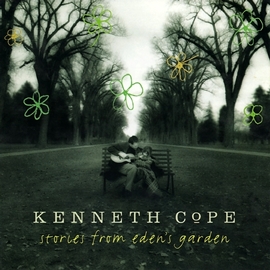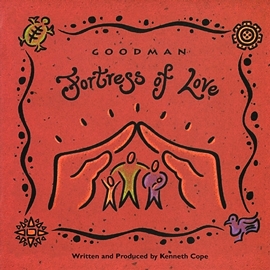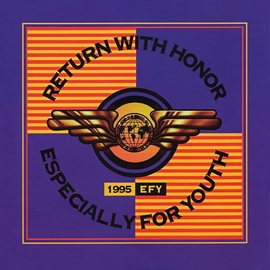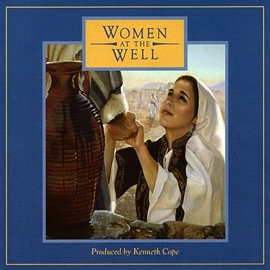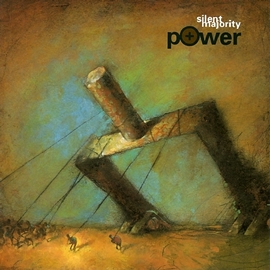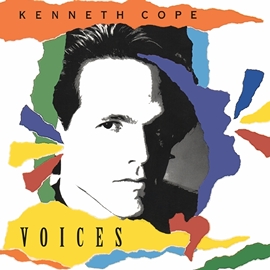 BECOMING A MUSICIAN
BECOMING A MUSICIAN
Q) What is your family’s musical background?
A) I have always loved music. Both of my parents’ families have a lot of musical talent. My mother sang a solo on the old Lawrence Welk Television Show when she was about 17. She was also a member of the Mormon Tabernacle Choir at the age of 18. As well, her father played fiddle and guitar, while her brothers played guitars, banjo and bass, and they all sang together in a band that traveled throughout the west. On my father’s side, his mother was studying to be an opera singer until she decided to have a family instead. Music flows pretty heavily in the genes. My brothers and I sang together quite a bit when we were younger.
Q) How did you get your start?
A) I worked pretty hard to develop my talents. Then, when an opportunity came along, I guess I was ready—prepared to take it. I was a counselor at Especially For Youth (EFY) in 1986. I brought my guitar to use as I gave nightly devotionals to the young men in my group. As the first week went by, the directors found out that the Thursday night fireside speaker/singer had fallen through. He was to help spiritually prepare the youth for the week’s testimony meetings. So they turned to me and asked if I could step in and take his place—sing some songs, tell some stories. I agreed, and I guess they were pleased; they had me do it for the rest of the summer.
I had the experience to make a cassette single of a theme song I had written for the EFY program that year. The director of EFY liked the song and thought it would be fine to make a recording of the song available to those attending during the summer. I had to raise a little money to do that…$600. But I had a built in audience for the song, so it wasn’t difficult to sell enough cassettes to pay back the money raised. Each cassette went for $2. However, making that single gave me experience…made me more prepared for when the next recording opportunity would come along. (Every project is a stepping stone to the next one; and each one should be the best we can give at that point in our lives. The goal is to keep growing, keep finding better ways to speak to the audience and reach them on a deeper level, making a greater connection with them each time.)
I met some people from that EFY who, being introduced to my talents, wanted to connect me to a music producer who was making recordings for the Latter-day Saints. This gentleman invited me to come sing for him. Afterwards, he asked me if I would sing on his next album. Then he asked me if I wrote songs. I told him I had written a few. He asked to hear them. After that he asked me to write and record my own album…to join his company as a recording artist. I recorded my first full album in 1987. And it went on from there. The Lord has opened all these doors for me. But I had to be ready to walk through them. What if I hadn’t spent the hours and days and years working on my craft, improving my singing, improving my capacity to communicate with an audience through music? A hundred doors could have opened, and I would not have been ready to walk through one of them. God requires our efforts. And through them He can bless and magnify us. He can prepare us for what’s ahead.
Q) How did you decide to be a musician?
A) I decided to be a musician through prayer and the voice of the Spirit. I knew I wanted to be one, but didn’t know if I was supposed to be one. So I went to God, truly wanting to know His will for my life. I finally received a confirmation that this is what I was supposed to do. However, I did feel a lot of spiritual urgings to be careful in order to go about it the right way.
Q) What is your advice to someone who wants to become a professional musician?
A) This is the way I look at it: God has things He wants us to do with our lives for Him. Because of this, He blesses us with certain talents and he puts certain righteous desires in our hearts. Our job is to get as close to Him as we can and seek to hear His voice in our souls, guiding us to where He wants us. For instance, if God wants you or me to make music for Him, He will certainly help us make that happen. But you and I have things to do too. We have to work hard at developing our musical skills, and learn all we can about good music. What makes a voice stand out as magnificent? What makes a song fantastic? We need to find our special gifts and work hard at making them excel. Then God will open the doors for us to have the opportunities to do what He had in mind for us all along. He’ll get us in touch with the right people. He’ll have certain individuals hear us who can help us get to where He wants us. God is a great agent. He is the best guider of our destinies. Our job is to find out what God has in mind for us. As we keep Him FIRST in our lives, He will be more able to lead us to where He wants us. We must do our part and work hard. Then we’ll be ready to take the opportunities He will put in our path. That is the best advice I can give anyone.
I know that God can take people to great places. He has done that for me. I am trying as hard as I can to please Him with the way I handle these opportunities. Again, if we keep Him first in our lives, everything else will work out for our good. I truly believe it!
Q) What type of musical training did you receive?
A) My training has been limited in worldly terms to junior high and high school choirs and bands but much less limited in heavenly terms. God is the best teacher available to us, and He has really blessed me. I believe I was helped to learn to play the guitar, sing, and write songs by the magnificent assistance of the Holy Ghost. I have no other way to account for it. I have tried very hard to avail myself to His tutoring. I have studied other musicians’ works and have tried to learn from them as well. I’ve asked myself: What makes this song great and not that one? What is so appealing about the way those words link together, etc.,? Again, by listening to the Holy Spirit we can learn techniques and strategies that bring emotion to our artistry.
SONGWRITING
Q) How do you go about writing? Is it spontaneous in its entirety or is it something you developed from tools in school?
A) I never studied writing in school. Instead, I studied songs that I considered as being well written. I analyzed them for their techniques, such as their inner rhymes, imperfect rhymes, song structure, hook placement, storytelling, etc. So while a lot of my writing has been somewhat spontaneous, it has also been affected by the tools I have considered to be successful.
Q) Do you start with the words and then find music or do you sometimes feel inspired to an idea by the music?
A) It goes all kinds of ways. Sometimes a musical melody and chordal sequence will come first. Probably, most of the time, since my songs are so message driven, a lyrical phrase will start everything. It will come from reading books, or pondering a doctrine that is represented in a simple aspect of daily living…and then my mind will be off and running.
Q) Do you have some writing tips that you can share?
A) I would encourage you to try to learn to write great melodies first and foremost, whether you can play an accompaniment to them or not. Work with one finger on the piano…focus on the melody. If the melody is strong enough to stand alone as beautiful…if someone could sing it a cappella and it would be enough, then you know you have a great melody. Then you can add accompaniment and enhance it. Also, with your lyrics, look for new ways to say things. Use parallels and analogies, stories and symbols. Don’t give the audience everything. Tell them a good part of what you want to say, but let them discover the rest on their own. Great art allows the audience to do some work, and discover for themselves the meaning. This way, the audience makes it their own, as if they completed the art. Study what you consider to be great songs. What makes them great? Learn from them. Incorporate their methods into your own writing.
Q) What do you do to combat writers’ block…when your ideas dry up?
A) I always try to have several songs going at the same time, so that when I come to a wall on one, I move to another song. That way I rarely feel like I’m stuck. I also like to read a lot and see the kinds of methods others use to express an idea…to try to see life through different eyes. This helps me to explore other avenues of writing. There are those occasions when I have to work on a single song to get it done in time. Sometimes it feels like work, work, work. But thanks to prayer, meditation, and a lot of effort, it eventually comes. Sometimes songwriting is storytelling; sometimes it’s metaphors; sometimes it’s parallels; many times, it’s a mix of many different methods. And for me, it’s rarely easy. But when it comes, it is so rewarding because of the effort given.
Q) Where do the ideas for lyrics and music in your songs come from?
A) I read a lot. I used to hate to read when I was younger because I was so slow at it. I felt like I had to understand everything that was written instead of just gathering the key ideas. I didn’t want to miss anything. But that took an enormous amount of time. So it really frustrated me. Now, I’ve come to believe that my desire to get it all was a blessing. I love words. I get so many ideas out of the best books, the scriptures being at the top of the list. As far as the music goes, I like to study successful music. I like to listen to movie soundtracks, orchestral music and great contemporary songs that really have an impact on people. I like to analyze them. I gravitate toward what resonates with me. And I try to use similar techniques in my own compositions. After a while, all these elements and techniques become natural to my way of creating. And as no two people are exactly alike, no two people would ever write a song the same way. We take from the world around us and express as only we can. This is why the world is full of so much wonderful music.
Q) Is there a certain place, time, or method you follow to write your music?
A) I have a home office—a little writing and creating studio—where I make the music. I write there a lot, sometimes on the guitar, sometimes on the keyboard, sometimes in my head. As well, ideas often come to me when I’m washing the dishes, or taking a walk, or riding in the car. It’s not smart to always have the sound system going in the car. Quiet time is important. It’s essential for getting ideas—inspiration. Messages can only be heard when there are ears to hear them. And since my music is so God and Christ focused, I have to work extra hard to hear what they might want me to say.
WORKING IN THE MUSIC BUSINESS
Q) Who do you work with to create your albums (i.e. musicians, singers, etc.)?
A) For the most part, we hire local musicians and singers to come into the studio and record for us. We have some of the most talented, world-class musicians here in Utah. And as the days go by, we discover more and more of them. Basically, I try to surround myself with as many brilliant and talented people as possible.
Q) What’s the best way to go about preparing a demo?
A) When the time comes that you feel prepared to demonstrate your best talent, then prepare a demo. It doesn’t have to be fancy. It should, however, show very clearly what it is you are trying to get people interested in, whether it be your singing voice, your writing, your arranging skills, or whatever. Put one, maybe two songs on there…your very best. Then send it to those you are hoping to work for or with. Then be patient, wait for a month or so, before expecting any message back. A lot of demos are sent to record companies and it takes a while for the company to get through them all. If after a month you haven’t heard back, then follow up.
Q) Do you find your experiences of getting into the business to be the norm among other successful LDS singer/songwriters?
A) I don’t know if there is a norm to getting a start in the business. Perhaps a customary avenue is being created now that the market has grown to what it is, but when I started, there wasn’t a whole lot happening in contemporary LDS music. You’d probably have to get some insights from some of the newer folks coming in. I do know that many who have been successful have created recordings and then performed a ton so that their works could be heard. In this market, inventive internet strategies, and live performances appear to lead the way in reaching new ears.
Q) What would you have done differently at the beginning had you known what you know now?
A) I don’t think I’d change anything at the beginning by knowing what I know now. I feel my opportunities were all heaven sent. I do feel it has now become my responsibility to have a continual hold on God’s hand in order to be guided to bring about the greatest amount of good. There is no time to waste. The world is shouting pretty loudly and getting a ton of converts…we are losing too many to their enticements (ONE is too many to lose!) I feel a strong sense of mission to have the music be as powerful as God will make it. How else can we keep those with young and fragile testimonies in His camp? God loves us. Let’s help His children find Him for keeps.
Q) Have you faced any challenges as a member of the Church in the recording industry?
A) The LDS recording industry is not faced with the same challenges as the world’s music industry. God is not very present in the world. Immorality, drugs, living godlessly, etc. are real problems someone in the world has to face. I, however, have felt that my work was for the Saints. I did go to Los Angeles for five years or so, and learned some great things that have helped the level of my work to rise, but I also learned that I don’t like having to face that world on any regular basis. There are certainly problems in our industry, but not to that extent. This is a real blessing!
Q) Have you been able to support your family with the income?
A) God has blessed me and my family tremendously. We are not growing rich by any stretch of the imagination, but we have, for the most part, had our needs met over the years. I am of the strong belief that if we are doing with our lives those things that God wants us to do, He will open the way for us to be able to continue in our path and consistently bring about more and more good.
Q) Have you faced any conflicts with Church service and touring schedules, etc.?
A) At certain stages of my work, it has been difficult to have too time demanding of a Church calling due to the heavy travel. But at other times, we have been plenty busy serving with our local congregation. So, again, if we are about our Father’s business, really trying to do things His way, He will lead us. And when He wants us home for certain assignments, we will listen, be home, and receive those assignments. It all comes down to how much we are going to get the Holy Ghost in our lives and follow His voice.



